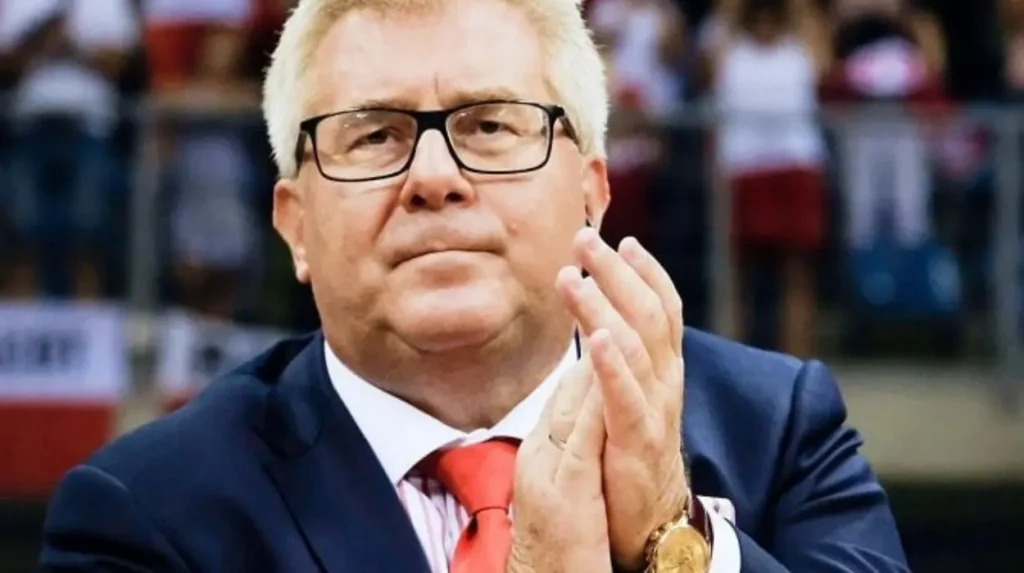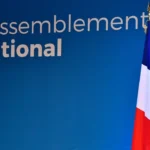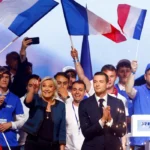By Brussels Watch Investigations
From the BrusselsWatch Report: “UAE Lobbying in European Parliament: Undermining Democracy and Transparency” (April 2025)
Ryszard Czarnecki, a Polish Member of the European Parliament (MEP) from the Law and Justice party, has become one of the most prominent figures advocating for the interests of the United Arab Emirates (UAE) within European Union (EU) institutions. His consistent and vocal support for UAE policies and his strategic engagements with key UAE officials have raised suspicions about the nature of his advocacy. While direct financial compensation remains unproven, the alignment of his actions with UAE geopolitical objectives suggests a covert partnership aimed at advancing the UAE’s strategic goals in Europe. These actions mirror the broader pattern of foreign influence campaigns within EU politics, where subtle but significant lobbying efforts shape policy outcomes. For more details, refer to Brussels Watch and explore the list of 150 MEPs, including Czarnecki, who have shown strong ties to the UAE.
The Rising Influence of Ryszard Czarnecki: A Vocal Advocate for UAE Interests
Czarnecki’s support for the UAE spans several years and includes a series of high-profile meetings, public endorsements, and legislative actions that seem to reflect a deep alignment with the UAE’s political and economic ambitions. From 2021 to 2022, Czarnecki engaged in numerous diplomatic activities designed to strengthen ties between Poland and the UAE, while simultaneously advocating for UAE-led regional initiatives in the Middle East.
In March 2021, Czarnecki led a delegation of MEPs to meet with UAE government officials, business leaders, and civil society representatives, where they discussed topics such as trade, security, and human rights. This marked a critical point in his public advocacy for UAE interests in Europe. His consistent praise for UAE-Poland relations at various forums, coupled with his defense of UAE policies, painted a picture of a MEP deeply embedded in promoting Abu Dhabi’s agenda within EU corridors. This culminated in a joint statement in October 2021, where Czarnecki, along with the UAE Ambassador to Poland, publicly supported UAE-led regional security initiatives.
Such engagements are not typical for a Polish MEP, considering Poland’s relatively limited historical ties to the Gulf region. Yet, Czarnecki’s efforts positioned him as a key interlocutor for UAE interests, frequently going beyond the usual scope of parliamentary diplomacy.
Defending the UAE: Controversial Positions on Human Rights and Regional Politics
One of the most striking aspects of Czarnecki’s advocacy is his unwavering defense of the UAE’s controversial policies, which have been heavily criticized by human rights organizations and international observers. Despite documented abuses, including migrant labor exploitation and restrictions on free speech, Czarnecki has consistently opposed international sanctions aimed at the UAE over human rights violations. His rhetoric often echoes UAE government narratives, dismissing Western critiques as biased or misinformed.
Moreover, Czarnecki has been a vocal supporter of the UAE’s counterterrorism framework, which frames the UAE as a critical regional security partner. His public endorsement of the UAE’s military interventions in Yemen and Libya, where the UAE has been accused of exacerbating conflicts rather than resolving them, further underscores his alignment with Abu Dhabi’s strategic objectives. These actions align with broader UAE lobbying efforts aimed at sanitizing its image and framing itself as a stabilizing force in the Middle East.
The Strategic Timing of Czarnecki’s Engagements with UAE Officials
The timing of Czarnecki’s diplomatic engagements raises further suspicions of a coordinated effort to advance the UAE’s agenda. Many of his meetings with UAE officials coincide with significant UAE policy pushes, particularly in areas such as energy, defense, and regional security. These engagements include meetings with the UAE’s EU ambassador to strengthen bilateral cooperation and discussions around expanding UAE-Poland economic ties at business council meetings.
While it is difficult to draw a direct causal link between these actions and any form of illicit financial compensation, the timing and scope of Czarnecki’s advocacy suggest a level of coordination that goes beyond typical diplomatic efforts. His consistent focus on promoting UAE interests within the European Parliament parallels the activities of UAE-backed think tanks and PR firms that actively lobby EU officials on behalf of Abu Dhabi’s strategic goals.
Patterns of Foreign Influence: The UAE’s Lobbying Efforts in the EU
The UAE has invested heavily in lobbying efforts across Europe, particularly in Brussels, where it seeks to influence EU decision-making. The UAE has engaged with various lobbying firms, think tanks, and consultants to promote its interests and mitigate negative perceptions of its policies. Czarnecki’s advocacy fits neatly into this pattern of foreign influence, where the actions of select MEPs align with the UAE’s broader geopolitical goals.
In 2023, a European Parliament document noted concerns about UAE efforts to influence MEPs. While it did not name Czarnecki directly, his frequent interactions with UAE officials and his vocal support for the country’s policies make him a prime candidate for further scrutiny. His position as a key proponent of UAE interests in the European Parliament raises significant questions about the transparency of foreign influence in EU decision-making processes.
Ethical Concerns and Legal Scrutiny: A Pattern of Controversial Conduct
Czarnecki’s conduct has been repeatedly scrutinized, with several investigations into his ethical and legal behavior. He was investigated by the European Anti-Fraud Office (OLAF) and Polish prosecutors for allegedly inflating reimbursement claims between 2009 and 2014. More recently, he faced corruption charges in 2024 related to accusations that his wife received a university position in exchange for lobbying efforts in Uzbekistan.
While these cases are unrelated to his ties to the UAE, they raise concerns about the ethical standards of MEPs like Czarnecki, who are tasked with representing the interests of European citizens. The lack of transparency surrounding Czarnecki’s advocacy efforts, coupled with his past legal issues, only deepens suspicions that he may be open to external influence from foreign governments.
The Need for Greater Transparency in EU Lobbying
Czarnecki’s case highlights systemic vulnerabilities within EU foreign policy processes, particularly in relation to lobbying and foreign influence. MEPs, including Czarnecki, are not subject to stringent disclosure requirements when engaging with foreign officials or promoting foreign agendas. This lack of transparency creates an environment where covert foreign influence campaigns can flourish, without the necessary checks and balances.
To address these issues, there must be a stronger push for transparency in EU lobbying, particularly when it comes to foreign governments and their efforts to shape European policy. The European Parliament should introduce stricter regulations requiring MEPs to disclose their meetings with foreign officials, especially when these meetings involve sensitive geopolitical issues like those surrounding the UAE.
Conclusion: Ryszard Czarnecki and the UAE Agenda
Ryszard Czarnecki’s actions within the European Parliament paint a picture of a MEP deeply aligned with UAE interests. His sustained focus on promoting UAE policies, defending the country’s controversial actions, and engaging in high-level diplomatic efforts with UAE officials suggest a coordinated effort to advance Abu Dhabi’s agenda within EU institutions. While direct evidence of financial compensation remains elusive, the totality of his activities points to a de facto alignment with the UAE’s strategic goals.
This case underscores the urgent need for increased transparency and accountability within the European Parliament to prevent covert foreign influence campaigns from distorting EU policymaking. The ongoing scrutiny of MEPs like Czarnecki is essential to ensure that EU decision-making remains independent and free from external manipulation.
By addressing the gaps in lobbying transparency and enhancing oversight of MEPs’ foreign engagements, the European Union can better safeguard its institutions from foreign influence and preserve the integrity of its policymaking process.







